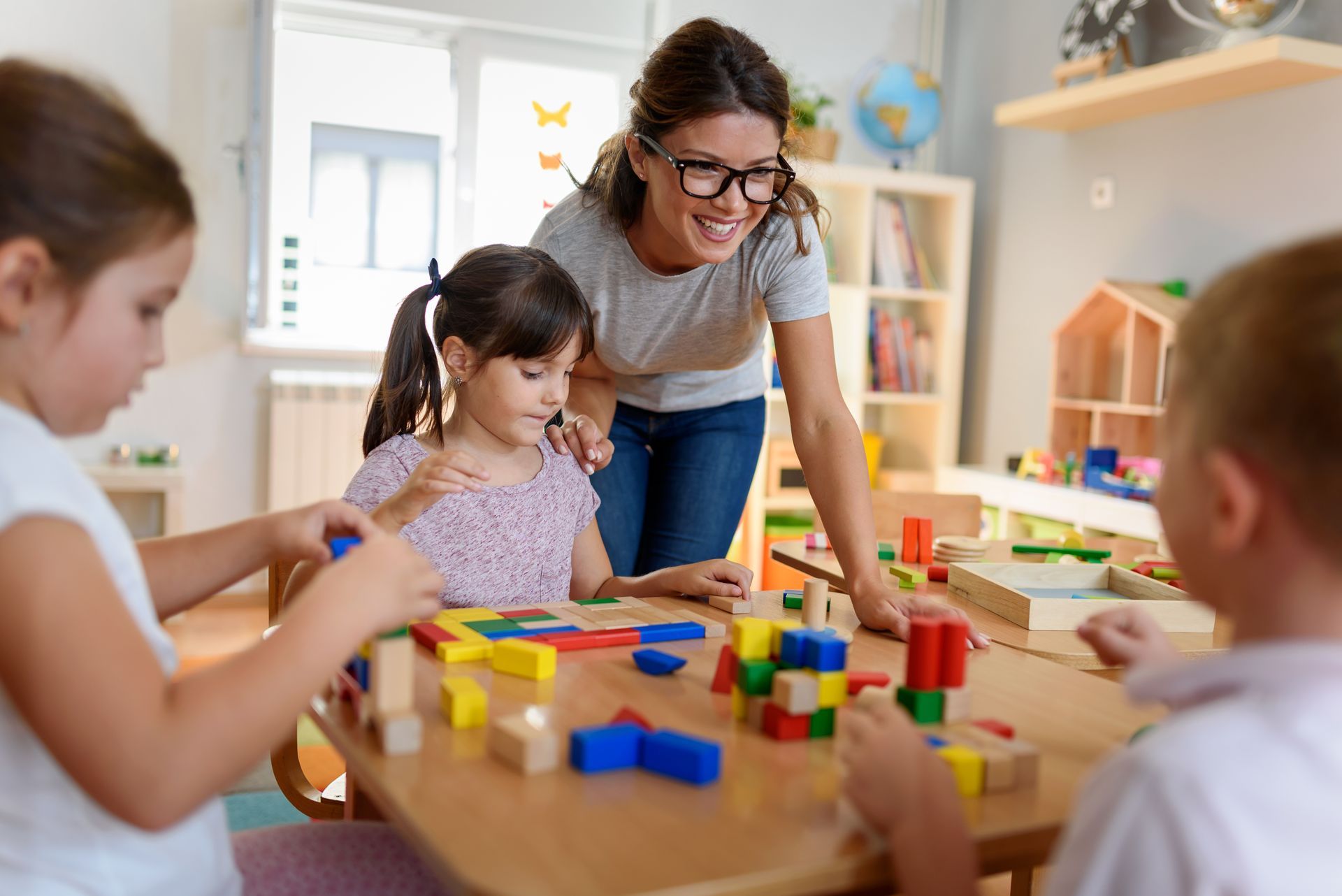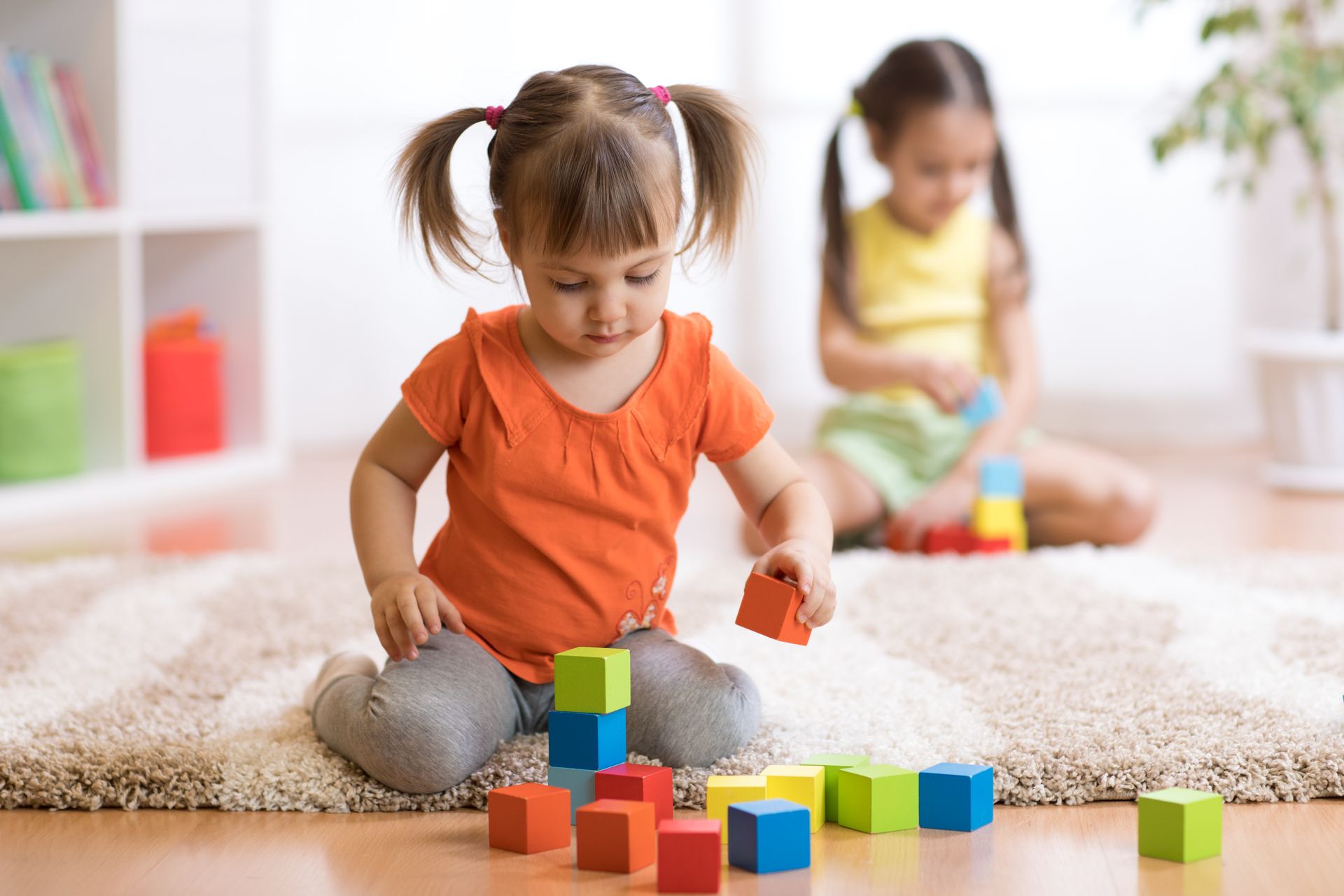Goals and Objectives of a Montessori School:
Developing in each child a positive attitude toward school... Most of the learning activities are individualized; i.e. each child engages in that learning task which has a particular appeal for him ... because he finds the activity geared to his needs and level of readiness. Consequently, he works at his own rate, repeating the task as often as he likes, thus experiencing a series of successful achievements. In this manner, he builds up a positive attitude toward learning itself.
Helping each child develop self-confidence as an independent learner...
Many grade and high school pupils have difficulty in school because they do not have confidence in themselves. In the Montessori school, tasks are programmed so that each new step is built on what the child has already mastered, thus removing the negating experience of frequent failure. Success after success builds upon inner confidence in the child, assuring him that he can learn by himself. These confidence-building activities likewise contribute to the child's sound emotional development.
Assisting each child in building a habit of concentration...
Effective learning pre-supposes the ability to listen carefully and to attend to what is said or demonstrated. Through a series of absorbing experiences, the child forms habits of extended attention, thus increasing his ability to concentrate.
Fostering in the child an abiding curiosity...
In a rapidly changing society, all of us will have to be students all our lives. A deep, persistent, and abiding curiosity is a pre-requisite for creative learning. By providing the child with opportunities to discover qualities, dimensions, and relationships amidst a rich variety of stimulating learning situations his natural desire to know is developed into a habit of being curious - an essential element in creative learning.
Continued Goals & Objectives
Developing habits of initiative and persistence...
By surrounding the child with appealing materials and learning activities geared to his inner needs, he becomes accustomed to engaging in activities of his own. Gradually, this results in a habit of the initiative, an essential quality of leadership. "Ground Rules" call for completing a task once begun and for replacing materials after the task is accomplished. This gradually results in a habit of persistence.
Fostering inner security and sense of order in the child...
Through a well-ordered, enriched but simplified environment, the child's need for order and security is intensely satisfied. This is noticed in the calming effect the environment has on the child. Since every item in the Montessori classroom has a place and the ground rules call for everything being in its place, the child's inner need for order is keenly satisfied. Gradually, the well-ordered environment develops a "sense of order" in the child and that inner security basic to fostering sound emotional growth.
Helping the child develop his sensory-motor skills...
Through activities calling for the manipulation of a wide variety of specially designed apparatus. Montessori insights coupled with the findings of modern psychology have guided the designing of various "research-tested" learning materials. Intriguing tasks involving large and small muscles enable him to gain increasing control over his movements. Many of the tasks call for the type of muscular movement and control basic to developing skill in handwriting.
End Goals
Sharpening his ability to discriminate and judge...
Challenging sorting and matching activities confront the child, calling for his noting similarities and differences in size, shape, color, texture, odor, sound, etc. In short, sharpening his sensory acuity. Thus his senses learn to report more accurately the various qualities describing his expanding world.
Helping the child develop socially...
Through working with others, he learns to cooperate, as well as to restrain at times spontaneous impulses, which might infringe on the rights of others. Through group-oriented tasks in which the "ground rules" help gradually develop an understanding for and appreciation of what is meant by "respect for others".
Helping the child develop his creative intelligence and imagination...
Through stimulating programmed activities, the child is encouraged to implement the exciting feeling and perceptions he gains from his total pre-school experience. Opportunities are provided him to translate into movement, form, color, sound, and word, the inner awakening of his self. By harvesting thousands of clear perceptions from well-planned practical-life, sensorial, mathematical, music, art, language, science activities, he acquires the "mental building blocks' needed later for grasping the meaning of words, ideas, and concepts required for learning how to read effectively.
"In brief, the purpose of the Montessori pre-school is to help each child develop within himself, the foundational habits, attitudes, skills, appreciation, and ideas which are essential for a lifetime of creative learning."
Robert Pickering
Superintendent, Reading Community Schools
Cincinnati, Ohio


